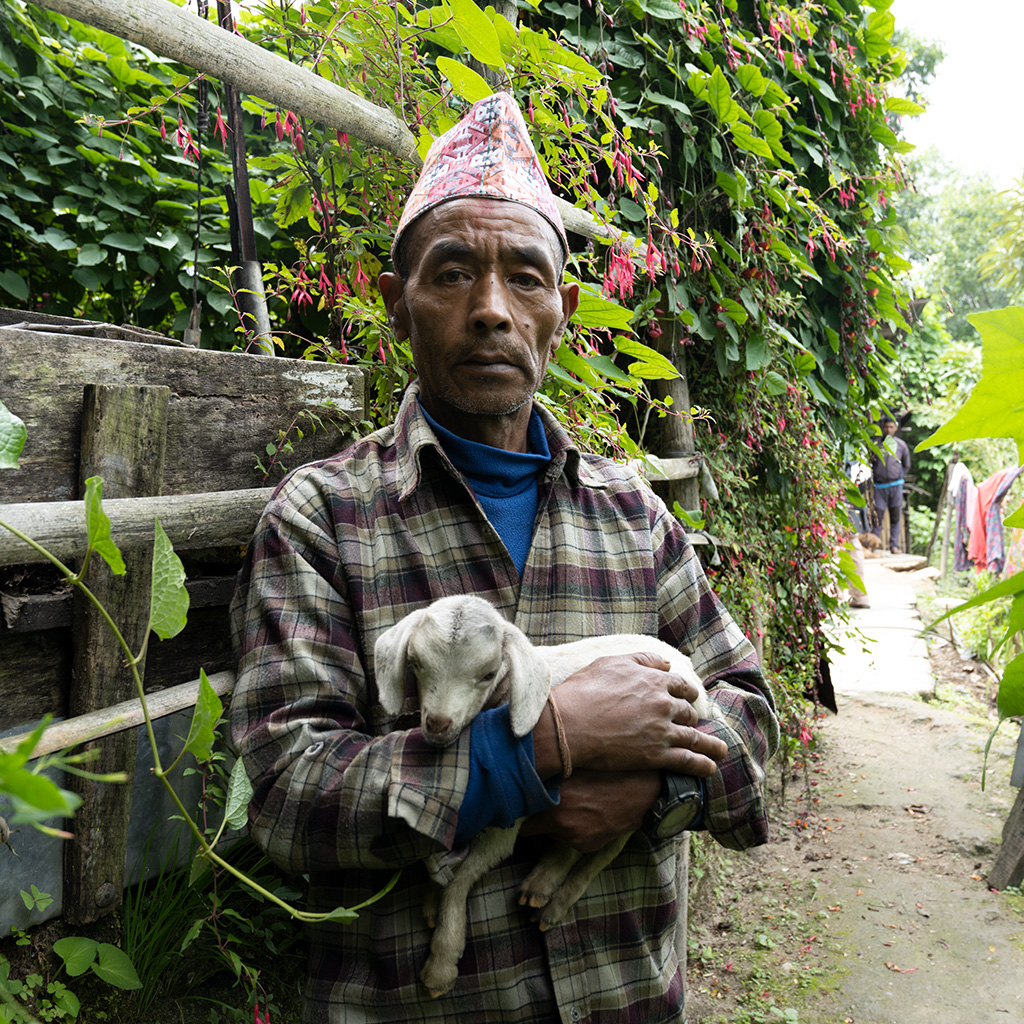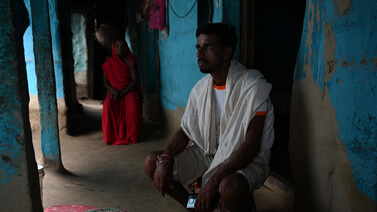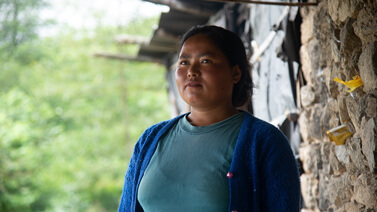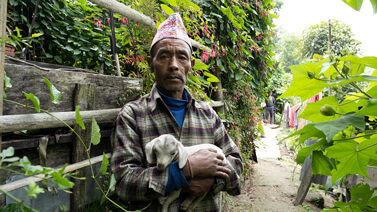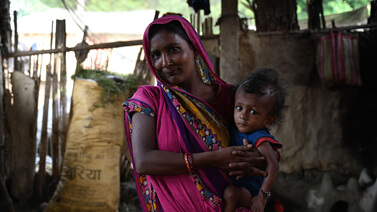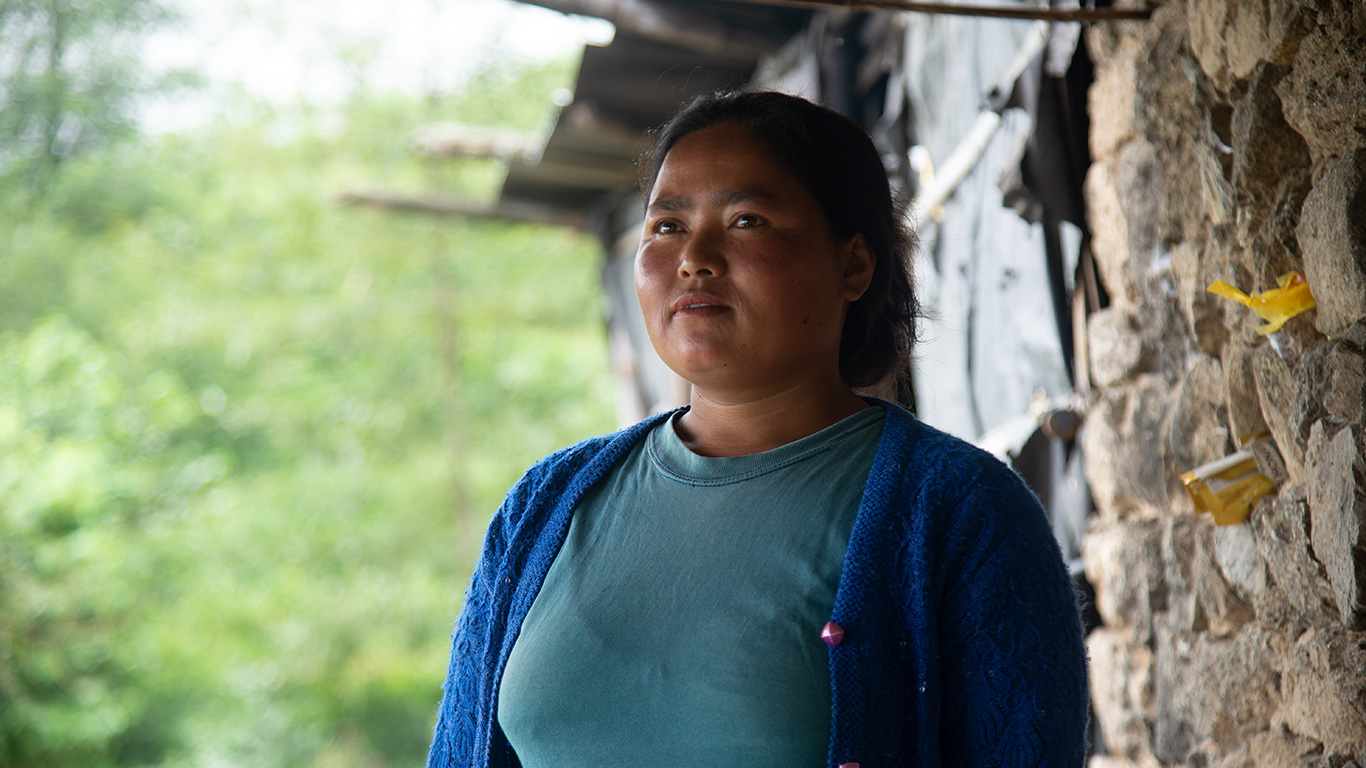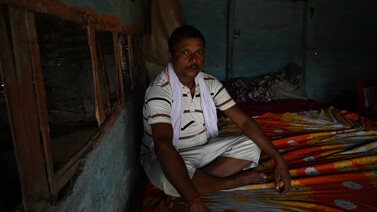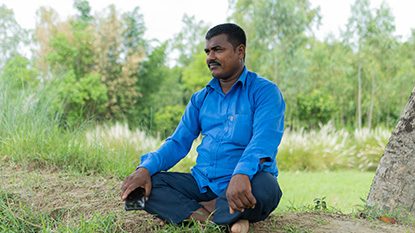My father was so straight that instead of fighting back, he would return home crying if someone scolded or belittled him. He had a sensitive heart. He was an employee at the forest office. I was his youngest son and together with my mother we lived in a small hut.
Father passed away when I was four. I still have a vivid memory of the day. When people wrapped his body to take him for the final procession, seeing the crowd and the blowing of the conch, I thought he was getting married. Little did I know at the time that Father had gone, never to return again. You see, hospitals weren't common then, at least not for the poor. My father had never visited a hospital.
After Father’s death, I slowly came to realise the extent of my mother’s struggle. The life of a widow is not easy in our country. She would go for work and bring home the food given by her employers. That was how we calmed our hunger. But on so many nights, there would be no food and I would sleep on an empty stomach while mother cried in a corner. Compared to what we have endured in the past, I think life is easy today. At least, we can fill our stomach with the wages that we earn by working all day.
It was not only food that was scarce but also water. There were no pipes like today. We would take turns at fetching water in jerry cans and buckets from a small well.
Things are not the same any more. People have started to forcefully bore water from the hills. So, the sources have dried up and the ones that remain are not safe. The water is now polluted by the presence of plastic and glass pieces that can easily make us sick.
People always had the notion that the water is going to last forever. But when the sources started drying up, they started to realise that that was not the case. Moreover, the training that we received from ICIMOD (International Centre for Integrated Mountain Development) helped us understand the importance of water and how to conserve it.
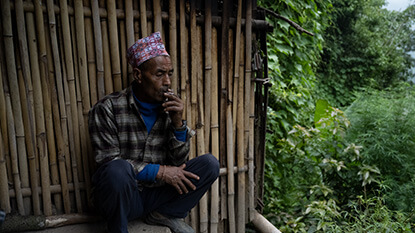
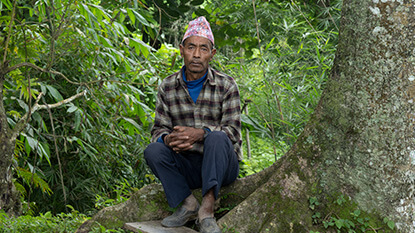
If we collect water in recharge ponds and protect these ponds properly, it will provide sufficient water for many households. Water is a very important element. We can skip a few meals but we can’t remain thirsty for long. We use water more than anything else in our lives. Water is also an integral part of human culture.
Seeing old and sick people drinking water before they take their last breath, I was amazed by the power of this element. And I become really sad when I see people wasting water.
I am in charge of this Sukepokhari recharge pond. I do it without remuneration. I also gauge the rainfall and keep a record of the same. Besides, I regularly monitor the water level of the sources.
I have seen for myself that the water collected in the recharge ponds nourishes the soil and helps revive and maintain the water supply in the sources. I also tell everyone that if we plant trees and flowers around these sources, the water level will increase; however, we shouldn’t plant bamboo.
As we started protecting this Sukepokhari, we also saw improvement in the situation of other ponds. We now have abundant water for irrigation and for our cattle. If we collect water for 12 hours, we can use it for three hours of irrigation. Our work has also contributed to the sprouting of other water sources around the recharge ponds.
I share the knowledge that I’ve gained with everyone because I want everyone to understand the importance of water. Even our youth do not have awareness regarding conservation of water. So, we need to educate them, through a dedicated programme, on protecting our water sources. They have to realise that they are themselves responsible for their future.
